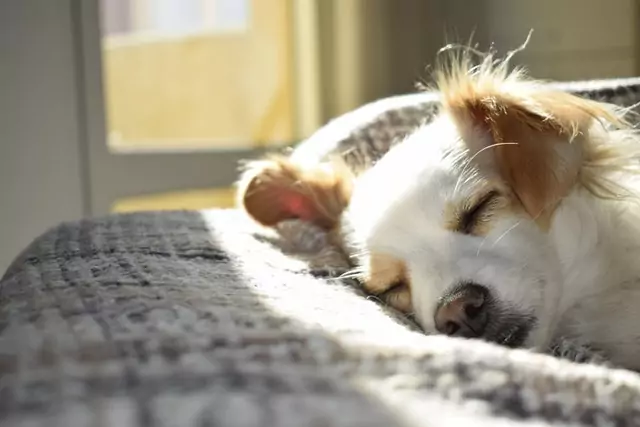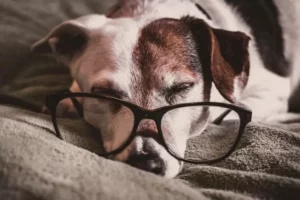0


Over the course of a 24-hour cycle, your dog would spend an average of 12 to 14 hours sleeping. Of course, as your dog ages, it will start to require more sleep because their lives will get busier and they will tire out much more quickly. They will also require more sleep to function correctly. On the other hand, babies and puppies would spend a lot more time trying to burn off their energy.
Comparatively, working dogs stay awake much longer. They are required to do this given the daily challenges they confront in terms of both their physical and mental health. The dog won’t sleep as much if he is engaged in something that will keep him busy all day. The dog would obviously need to catch up on sleep so that it may easily replenish its energy.
Your dog’s sleep is an essential component of their existence as a whole, therefore you shouldn’t be bothered by it. It’s normal if your dog takes longer naps. However, if you notice a big shift in your dog’s sleeping patterns or if something seems off, you should get in touch with a qualified veterinarian as soon as you can.
The many stages of life that your dog will go through will affect how long they live. They will respond to them in the same way that we will. Dogs are good at adapting to their natural environments, so if you change any of their routine encounters, they are likely to notice.
Dogs typically sleep more and get up sooner to use the restroom as they age. However, see your veterinarian if you detect any large or unexpected changes, such as your dog sleeping significantly more or less than usual. A health condition like arthritis, diabetes, a thyroid issue, or another ailment may show symptoms of sleep abnormalities.
Similar to people, a dog’s well-being can suffer from sleep deprivation. You may notice that your dog is acting more worried, anxious, or aggressive if they are not getting enough sleep. The quality of a dog’s sleep may also be impacted by specific medical issues. Consult your vet if your dog doesn’t seem to be getting enough sleep or is acting strangely.
A typical day of sleep for adult dogs should be between 12 and 14 hours. This may seem excessive, but their ancestors’ genetic programming tells them to use energy only when they need it, whether for play or socializing, or hunting. Larger breeds are able to sleep up to 18 hours every day.
Puppies, however, tend to sleep more throughout the day than adult dogs do. Young puppies find all that stimulation to be draining, despite the fact that they are little balls of energy one minute, eager to play and explore the world.
Midway through the activity, you might notice them abruptly pass out and take a nap to rest; if at all possible, try to let them finish. Puppy development depends on sleep, and they can easily sleep for up to 18 hours every day.
